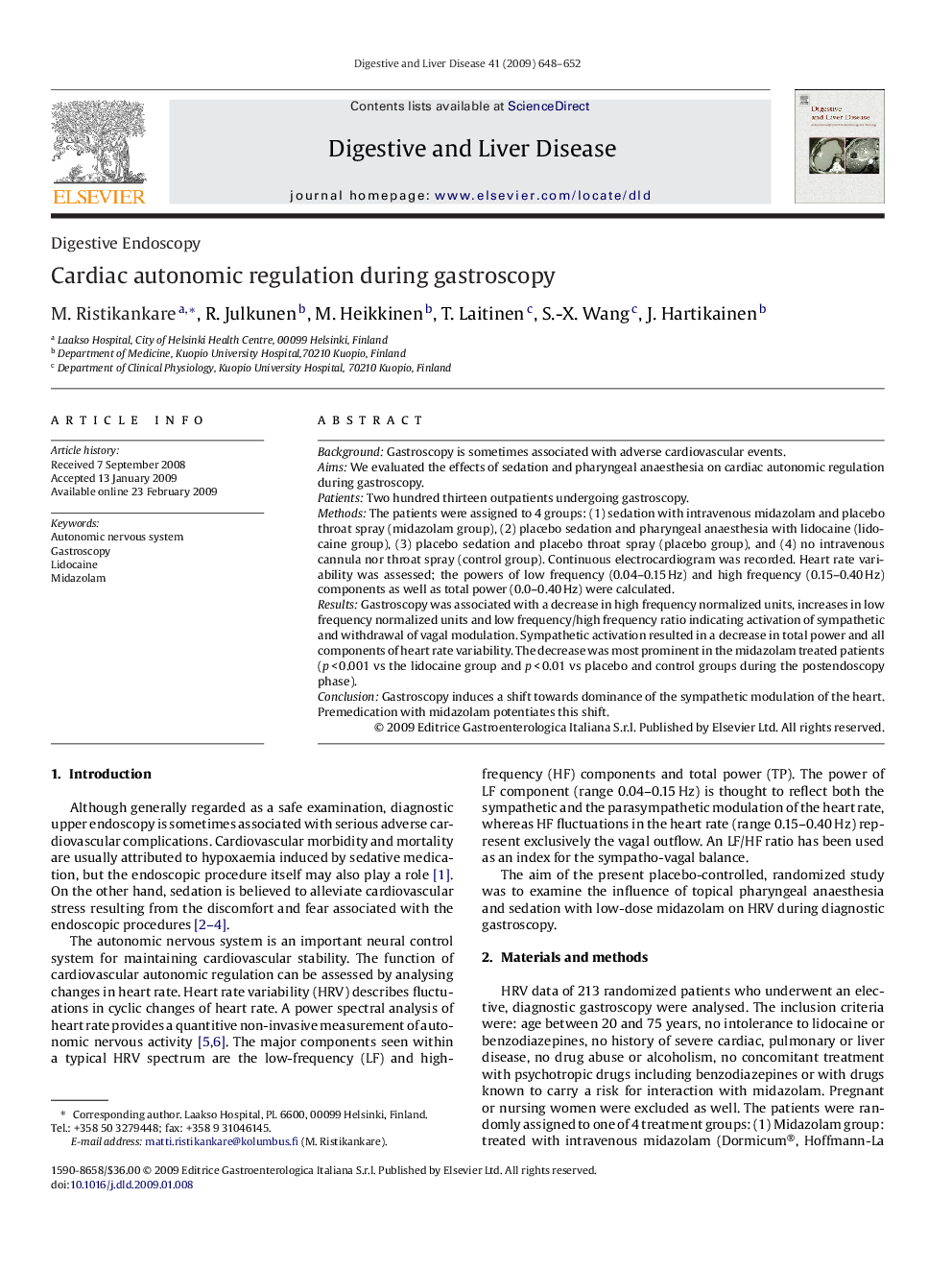| Article ID | Journal | Published Year | Pages | File Type |
|---|---|---|---|---|
| 3264393 | Digestive and Liver Disease | 2009 | 5 Pages |
BackgroundGastroscopy is sometimes associated with adverse cardiovascular events.AimsWe evaluated the effects of sedation and pharyngeal anaesthesia on cardiac autonomic regulation during gastroscopy.PatientsTwo hundred thirteen outpatients undergoing gastroscopy.MethodsThe patients were assigned to 4 groups: (1) sedation with intravenous midazolam and placebo throat spray (midazolam group), (2) placebo sedation and pharyngeal anaesthesia with lidocaine (lidocaine group), (3) placebo sedation and placebo throat spray (placebo group), and (4) no intravenous cannula nor throat spray (control group). Continuous electrocardiogram was recorded. Heart rate variability was assessed; the powers of low frequency (0.04–0.15 Hz) and high frequency (0.15–0.40 Hz) components as well as total power (0.0–0.40 Hz) were calculated.ResultsGastroscopy was associated with a decrease in high frequency normalized units, increases in low frequency normalized units and low frequency/high frequency ratio indicating activation of sympathetic and withdrawal of vagal modulation. Sympathetic activation resulted in a decrease in total power and all components of heart rate variability. The decrease was most prominent in the midazolam treated patients (p < 0.001 vs the lidocaine group and p < 0.01 vs placebo and control groups during the postendoscopy phase).ConclusionGastroscopy induces a shift towards dominance of the sympathetic modulation of the heart. Premedication with midazolam potentiates this shift.
